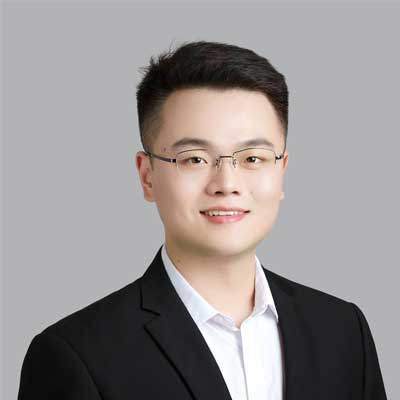
Anqi Wang
Assistant Professor, Chemistry
Physical Science and Engineering Division
“Efficient batteries save people time and money, but they can also save the environment. My goal is to use materials chemistry and electrochemistry to help us transition to a net-zero carbon economy.”
Program Affiliations
Biography
Dr. Anqi Wang joined KAUST in 2024 as an assistant professor of chemistry within the Physical Science and Engineering Division. His research focuses on the function-led design and synthesis of advanced materials to address challenges in sustainability and the energy sector. Among his notable contributions is the development of innovative membranes for redox flow batteries, which has led to significant improvements in battery efficiency and longevity while eliminating toxic “forever chemicals" used in conventional materials — a breakthrough earning Wang international recognitions, including being named to Forbes 30 Under 30 Europe and receiving awards from the Royal Society of Chemistry and the American Chemical Society. At KAUST, he leads an interdisciplinary research group working at the intersection of materials chemistry, electrochemistry and electrochemical engineering. His team is dedicated to designing and developing new materials and electrochemical processes for energy storage and conversion, molecular separation, and resource recovery and recycling, with the broader aim of advancing scalable and energy-efficient solutions for a circular carbon economy.
Research Interests
Dr. Wang’s work seeks to uncover fundamental relationships between material propertiesparticularly redox activity and nanoconfined ion transport — and structural features acrossmultiple length scales, from the atomic to the macroscopic level. His research spans several keyareas: 1. Synthesis of redox-active organic molecules; 2. Synthesis of ion-conducting polymerswith complex architectures via living, controlled polymerization, and the fabrication ofmembranes and membrane-electrode assemblies; 3. Engineering of material structures at alllength scales, from covalent to higher-order structures, such as self-assembled microstructuresand interfaces in multicomponent composites; and 4. Electrochemical system development andintegration, particularly redox flow batteries, fuel cells, and electrolyzers.
Education Profile
Research Associate, Imperial College London, UK, 2021—2024
Ph.D. in Chemical Engineering, Imperial College London, UK, 2021
B.Eng. (Honors), Zhejiang University, China, 2016
Awards and Recognitions
Publications
Research Areas
- Chemical and Biological Engineering
- Chemical Science

